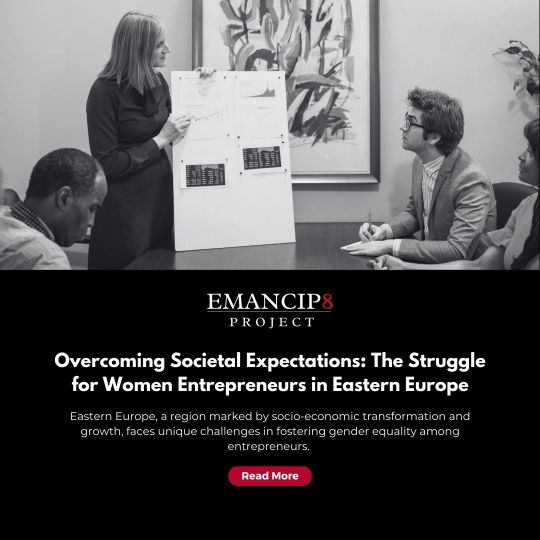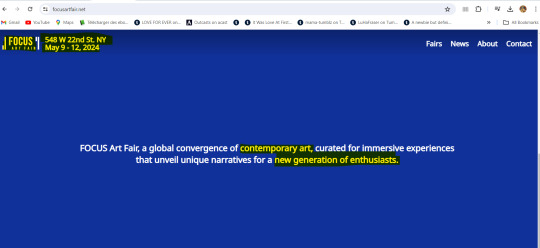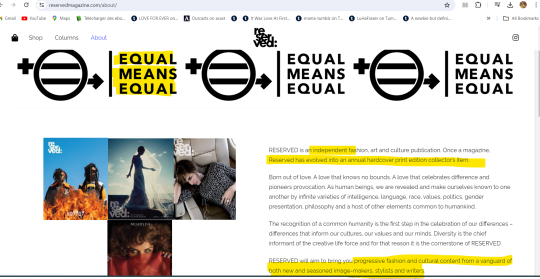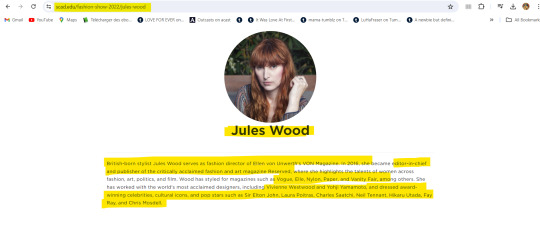#Gender Equality Eastern Europe
Text
Overcoming Societal Expectations: The Struggle for Women Entrepreneurs in Eastern Europe
by Emancip8 Project

Eastern Europe, a region marked by socio-economic transformation and growth, faces unique challenges in fostering gender equality among entrepreneurs. Women in these countries confront pervasive societal expectations and systemic barriers that hinder their entrepreneurial pursuits. This article examines the multi-layered struggles faced by women entrepreneurs in Eastern Europe and highlights the importance of implementing targeted policies and interventions to empower these individuals.
Cultural norms and gender roles significantly impact women’s opportunities in Eastern Europe (Pascall & Lewis, 2004). Traditional beliefs often relegate women to caregiving roles, hindering their ability to engage in entrepreneurial activities. Thus, dismantling these entrenched stereotypes is imperative to create a more inclusive business landscape for women (Aidis et al., 2007).
Furthermore, access to financial resources remains a critical challenge for women entrepreneurs. Research by Jennings and Brush (2013) highlights that women in Eastern Europe are often at a disadvantage in securing loans and attracting investors, as gender biases persist in financial institutions. This limited access to capital can stifle the growth of women-owned businesses and deter potential female entrepreneurs.
Networking and mentorship opportunities are essential for the success of women entrepreneurs (Stoian & Rialp, 2017). However, the lack of representation of women in business leadership roles within Eastern Europe contributes to a scarcity of role models, which can negatively impact women’s aspirations and self-confidence. By promoting networking initiatives and mentorship programs tailored to women, Eastern European countries can help bridge this gap and empower women entrepreneurs.
Educational disparities and insufficient skill development further compound the challenges faced by women entrepreneurs in the region (Drobnic & Blossfeld, 2004). Addressing the gender gap in education and access to resources is crucial for fostering a more inclusive entrepreneurial environment. Targeted training programs and resource allocation for women can enhance their ability to establish and grow successful businesses.
In summary, promoting gender equality among entrepreneurs in Eastern Europe necessitates a multifaceted approach that tackles cultural norms, financial barriers, networking deficiencies, and educational disparities. By implementing targeted policies and support systems, Eastern European countries can create a more equitable and prosperous business environment for women entrepreneurs.
References:
Aidis, R., Welter, F., Smallbone, D., & Isakova, N. (2007). Female entrepreneurship in transition economies: the case of Lithuania and Ukraine. Feminist Economics, 13(2), 157–183.
2. Drobnic, S., & Blossfeld, H. P. (2004). Career patterns over the life course: Gender, class, and linked lives. Research in Social Stratification and Mobility, 21, 139–164.
3. Jennings, J. E., & Brush, C. G. (2013). Research on women entrepreneurs: challenges to (and from) the broader entrepreneurship literature? The Academy of Management Annals, 7(1), 663–715.
4. Pascall, G., & Lewis, J. (2004). Emerging gender regimes and policies for gender equality in a wider Europe. Journal of Social Policy, 33(3), 373–394.
5. Stoian, M. C., & Rialp, A. (2017). Women entrepreneurs in Europe: fostering entrepreneurial competence through networking. Competence-Based Vocational and Professional Education, 4, 693–716.
Read more at Emancip8 Project.
#Emancip8 Project#Female-owned Businesses Eastern Europe#Overcoming Societal Expectations#Gender Equality Eastern Europe#Women Entrepreneurs Eastern Europe
0 notes
Text
Far-right leader Giorgia Meloni named as Italy's first female prime minister | CNN
Far-right leader Giorgia Meloni named as Italy’s first female prime minister | CNN
CNN
—
Populist firebrand Giorgia Meloni has been named as Italy’s first female prime minister, becoming the country’s most far-right leader since Benito Mussolini.
She received the mandate to form a government from Italy’s President Sergio Mattarella on Friday afternoon after two days of official consultations, and is set to be sworn in at 10 a.m. local time (4 a.m. ET) on Saturday.
Last…

View On WordPress
#conflicts and war#continents and regions#demographic groups#diversity#diversity and inclusion (contextual)#eastern europe#elections and campaigns#europe#females (demographic group)#gender equality#gender equality (contextual)#government and public administration#Italy#political figures - intl#Politics#population and demographics#Russia#russia-ukraine conflict#sex and gender#silvio berlusconi#societal issues#society#southern europe#unrest#Vladimir Putin
0 notes
Text

South-Eastern Poland, December, 1662 - three teenage girls of different faiths form a short-lived but memorable travel friendship
(from the left: a Tatar mercenary's sister, an Arian refugee and the daughter of a travelling Karaite Hakham. history notes under the cut)
the Arians, or Socinians, or as they called themselves, the Polish Brethren, were a radical branch of protestantism that constituted one of many religious minorities of the Polish-Lithuanian Commonwealth. their doctrine rejected many foundational Calvinist doctrines (such as predestination, divine nature of Christ, the trinity, etc) and preached principles of pacifism, separation of church and state, and equality between the genders. during the 1660s, when Poland-Lithuania was under attack by protestant Sweden, Arian men were banished from the country under threat of death - in 1662, the law was expanded to include Arian women, too. the Polish Brethren would not survive as a religious movement after exile.
Karaites are an ethnic and religious group of (most likely) Semitic origin, which have formed communities in Eastern Europe as far back as the 10th century. the Karaite faith split from Rabbinic Judaism probably around the 1st century bc. Karaims don't recognise Oral Law as legitimately binding and spiritual leaders/scholars, called Hakhams, have more of an advisory than authoritative role. Karaite communities in the Commonwealth suffered exceptionally heavy losses in the 1650s as a result of armed conflicts. today there are around 340 Karaites living in Poland and 200 or so in Lithuania, where the Karaim language is now used for liturgy, as opposed to the traditional Hebrew. despite the Karaite people Semitic origin, the Karaim language emerged in Crimea, from the Turkic language family, being derived from the now-extinct Kipchak - Karaim shares this origin with Tatar, Siberian Tatar and Crimean Tatar.
Tatar is an umbrella term for many different ethnic groups originating from 12th century Mongolia. Tatar settlers, polytheistic as well as Muslim, first came to Lithuania in the 14th century. as they started to be an integrated ethnic & religious minority of the Commonwealth, they came to be known as Lipka Tatars. their contribution to Polish-Lithuanian history mostly has to do with warfare, in which the conflicts of the 1600s are an important episode. today, there are 10-15 thousand Lipka Tatars in Poland, Lithuania and Belarus. (speak Polish? check this out!)
#oh clothes are inaccurate? try finding references for 17th century female clothing of a rural eastern european ethnic minority. try it.#ask box Open. goodnight.#eelart#history#17th century#PL
81 notes
·
View notes
Text
The 28th Amendment?
After a long silence, Sleeping Beauty's social media seems to be (somewhat) back to life, with this story:

This is part of a national public awareness and lobby campaign organized by a US NGO, Equal means Equal, aiming to promote the formal inclusion of a 28th Amendment (the Equal Rights Amendment) in the US Constitution.
This is the current state of play: what is needed, according to Equal means Equal, is a final push, in order to make something started in 1972 a reality. This state of play is unthinkable, to an European, by the way: gender equality became effective on our ravaged, postwar continent for many reasons, including the most practical you could think of. Those are usually related to voting rights, the acknowledgement of women's contribution to the war effort, the economic and social reconstruction process and even a faux-equalitarian ideology, like in Eastern Europe and the Soviet Union (loudly promote gender equality, but at the same time, take away any legal guarantee and protection of private ownership of anything, from houses to shops to banks).

The final push for success is a public appeal to POTUS to act on it, launched as a side event at the New York FOCUS Art Fair, a contemporary art rendezvous' with a strong Gen Z flair:

C is a part to this event with a signed copy of Reserved, an independent media outlet with a clear progressive flair and all the bells and whistles of a Gen Z future icon:

I was particularly intrigued by this: 'Once a magazine, Reserved has evolved into an annual hardcover print edition collector’s item'. It immediately made me think of one of my favorite things in the art world, Franco Maria Ricci's FMR Magazine (https://www.francomariaricci.com/en). A mythical thing, the stuff of legend - to each generation its own, I suppose.
Time to make an important point, though: the Reserved copy up for silent auction was not donated by C herself, but by Jules Wood:

Meet Jules Wood, editor-in-chief of Reserved and fashion director of Ellen von Unwerth's VON Magazine :

Pretty much sure this is an old acquaintance, too.
In the couple of hours since I began writing this post, bidding started from 500 USD and has now risen to 2000 USD, thanks to a generous soul, who wishes to remain Anonymous:

You don't say. Anonymous, huh?
Cue in the Stans who will surely bitch it's 'just her US friends' (primarily BIF barking and/or Anon being dropped in Fascist inboxes in 3, 2, 1...) But hey, we have a different view, don't we?
And it's quite alright.
PS: Pics in that Reserved copy are taken from C's photoshoot for Ellen von Unwerth , sometime before June 2021:

50 notes
·
View notes
Text
Servant Matrix: GIUSEPPE BALSAMO

Class: Ruler
True Name: Giuseppe Balsamo
Gender: Male
Alignment: Neutral-Balanced
Height/Weight: 188cm / 85kg
Source: Historical Fact, 'The Queen's Necklace' by Alexandre Dumas
Region: Europe
ENDURANCE GAUGE: [ X / X / X / / ]
MANA CHARGES: [ X / X / X / X ]
COMMAND SPELLS: [ X / / ]
A man who proudly asserts himself as the Ruler-class Servant summoned by the Interlopers. His True Name is 'Giuseppe Balsamo', though he is most commonly known as 'Count Cagliostro'. His reputation and history is shrouded in mystery. A fraud and a hero. A healer and a magician. A prince and a pauper. The definition of someone with a 'multiple-choice' past. As a Ruler, he's summoned with as his traits a healer, having spent his youth in a monastery and his adult years as a traveler throughout Europe, healing the sick.
One of the last of the Interloper's Servants of the Origin War, he was ordered by the Interlopers of the past to wait for their return and gather information in the meantime. However, once his masters had been sealed away, the hate-filled curse that plagued his heart had vanished, and he had simply found himself aimless until seeing the newly-revived Interlopers and their Servants arrive in the Transient Megalopolis.
Now with renewed vigor and purpose, he joins the Masters in their quest to save the Solar Cell.
SKILLS:
Espionage (A Rank): Giuseppe Balsamo was known as a great swindler, able to deceive Parisian high society with ease. He has the ability to hide in plain sight and even make enemies believe that he's their ally. However, such a skill takes time and preparation to use to the fullest.
Product Construction (Fake) (EX Rank): An ability to 'forge' items- a variation of the 'Item Construction' skill. Given the proper time and research, Giuseppe can create copies of items identical in effectiveness to the real thing. The rarer the item, the more time it will take. With his apothecarial knowledge, he's best suited to replicating healing items.
Human Anatomy Research (B+ Rank): A skill that expresses an understanding of the physical body and medical techniques.
I am Asherah (EX Rank): A skill rooted in deception. Giuseppe's knowledge allows him to pull off grand illusions.
Althotas Continuum (C Rank): As a student of the great Alchemist Althotas, he's learned a variety of secrets pertaining to the study of Magecraft. He has inherited the secret of his teacher, a skill that seems to be equal to immortality on the surface, though it has it's limits.
Eastern Martial Arts (A+ Rank): Rather than having simply an understanding of magic and medicine, he also has knowledge of Eastern, bare-fisted martial arts, giving him a degree of physical proficiency.
-
Strength: D
Endurance: C
Agility: D
Mana: B+
Luck: A
NP: B
NOBLE PHANTASM: Rébellion au Monde
A whirlpool of magical energy that engulfs the area like a Reality Marble. The laws of the world are twisted to a disgusting degree, and order itself begins to unravel. A great spirit of revolution sweeps across, and the 'structure' that serves to chain others is shattered with aplomb. The longer Giuseppe has time to prepare and sow the seeds of discord, the more powerful this Noble Phantasm becomes.
14 notes
·
View notes
Text
Yesterday was an amazing day for another reason.
🇪🇪 Estonia became the first country in Eastern Europe to pass a equal marriage law, granting all adult couples equal rights, regardless of their gender or sexual orientation!!!
PS Slovenia 🇸🇮 passed a similar law last year after a Constitutional Court ruling. In Estonia, the new liberal government introduced the law freely.
Congrats to all! 🥳 🎉 👏
84 notes
·
View notes
Text
It is not unusual for nations recovering from wars to incentivize their populations to raise their birthrates. The post-World War II Soviet pronatalism campaign attempted this on an unprecedented scale, aiming to replace a lost population of 27 million. Why, then, did the USSR re-legalize abortion in 1955?
Mie Nakachi uses previously hidden archival data to reveal that decisions made by Stalin and Khruschev under the rubric of 'family law' created a society of broken marriages, “fatherless” children, and abortions, each totaling in the tens of millions. The government reversed laws regarding paternal responsibility, thereby encouraging men to impregnate unmarried women and widows, and blocked available contraception, overriding the advice of the medical establishment. Some 8.7 million out-of-wedlock children were born between 1945 and 1955 alone. In the absence of serious commitment to supporting Soviet women who worked full-time, the policy did extensive damage to gender relations and the welfare of women and children. Women, famous cultural figures, and Soviet professionals initiated a movement to improve women's reproductive health and make all children equal. Because Soviet leaders did not allow any major reform, an abortion culture grew among Soviet women and spread throughout the Soviet sphere, including Eastern Europe and China.
Based on groundbreaking research, Replacing the Dead traces how the idea of women's right to an abortion emerged from an authoritarian society decades before it did in the West and why it remains the dominant method of birth control in present-day Russia.
the Soviet Union was kinda messed up imo
88 notes
·
View notes
Note
i agree that in the end there's no one we detransitioners hurt more than ourselves. and i too have to admit that it also hurted immensely to watch your favourite media personalities turn to gender shit.
i was gnc even before i realised that im a lesbian. i grew up in eastern europe, and didn't know that real love between women is even possible, that its called being a lesbian. everything around me implied that im bound to marry a man in the end, give birth to children and be a mother. and it was scary. i secretly dreamt of waking up a boy one day because then i would be able to marry a nice girl. when i got my own access to the internet, i was exposed to even more misogyny and it made me spiral even further to the point of dreading growing up, feeling disgusted and trapped in my own body etc. but on the other hand i slowly found about homosexuality and other stuff. and so i discovered other gnc women. famous gnc women. when i was a teen, i think i had a celebrity crush on Rain Dove(i still find her very attractive), and listened to JD Samson and LP. (i sorta built my own teen separatist utopia in my online space, when i only watched and listened to and read what gnc and lesbian women had to offer) it was like a breath of fresh air for me. and then women who were just like me, whom i looked up to one by one started to proclaim themselves non-binary and proceed to promote that rhetoric further. it threw me back so hard i got depressed. i was bullied by my dad for "looking too much like Jolie's tif daughter". it took me long to stabilise myself back. im still dysphoric, some times feel worse than others, but nothing i can't bear really.
now i don't think that those women caused more damage than my misogynistic environment,my school, classmates, dance class, family, social media etc., they just reopened the old wound in an unstable teen. but i can't help feeling wronged by them a little bit. i don't place the whole blame on them, at least not equal to what misogynistic society's done to me first. as well as i don't think that their fault as celebrities is anywhere near to anything that a regular detrans woman may have of feel. but i do think that people like them, who helped to spread those ideologies, even if it came from their own traumas and discomfort caused by misogyny, have to take some responsibility for their actions, once they decide to detrans or desist. at least for leading young, gnc, lesbian, mentally ill or unstable, autistic girl to the gender bs.
(thanks for reading my rumbling. i can also call my feelings very subjective, because i acknowledge that after all this time i still feel angry at the world, and at the environment those women had become a part of, that led a little anxious insecure girl i was to think there was actually something wrong with her. can also be the case. bc page's transition also hit harder than i wanted, even though i already was a radfem)



btw shiloh jolie (john) is not trans, shes just a gnc girl and i think its awesome that her mom let her explore that stuff and called her john (as shiloh requested) bc its what allowed her to grow up to be gnc unapologetically rather than self-hating.
i get where ur coming from though, i think its a pretty toxic cycle in general, like many gnc women & girls buy into that ideology because of how it targets them & then further promote it which slowly impacts more and more gnc people negatively. i just think that people have a lot of unnecessary hostility and presumptiveness towards detrans people that acts like these detrans people were personally responsible for this cycle existing, as if they also werent harmed by that same rhetoric and aren't actively fighting against it by being vocal against it. that said, of course it's important to go against your past wrongs and to try to right them, my issue is that people assume the worst of detrans people & don't realise that its detrans people fighting against those wrongs the hardest right now, alongside gnc people.
7 notes
·
View notes
Text
Over the past couple of years Estonia has been known largely for its strong support for Ukraine under recently re-elected Prime Minister Kaja Kallas.
Now the Baltic state has distinguished itself in yet another way. Effective on New Year's Day of 2024, marriage equality becomes the law in Estonia. Estonia joins Slovenia as countries in Eastern Europe where same sex marriage is legally recognized.
The law follows earlier moves to grant greater rights to LGBTQ+ Estonians, all of which fell short of equality.
In 2014, Estonia introduced same-sex civil unions, which did not deliver the same adoption rights and parental recognition that automatically come with marriage.
Same-sex relations between men were criminalized in Estonia under Soviet occupation, and did not become legal again until 1992, one year after independence.
Most former communist countries in Europe and Central Asia lag behind Western nations on LGBTQ+ rights. In 2022, Slovenia became the first post-communist country to allow same-sex marriage.
Russian occupation and communism stifled social progress in Eastern Europe and caused the region to fall behind countries in Western Europe for decades. That has gradually been changing.
The conservative opposition in the Riigikogu, Estonia's parliament, tried to use the marriage equality law to bring down the government. Its no confidence motion failed.
ERR (Eesti Rahvusringhääling), Estonia's public broadcaster, provides more details.
Tuesday, the Estonian government has survived a vote of no confidence in the Riigikogu tied to amendments to the Family Law Act and related legislation, which is granting same-sex couples the legal right to wed.
55 members of the Riigikogu voted in favor of the measure, while 34 voted against.
It is proposed that the institution of marriage, as defined by family law, be modified so that any two natural persons of legal age, regardless of gender, may marry. The words "man and woman" will be replaced with the words "two natural persons."
The 85 amendments to the Family Law Act and other legislation which will introduce same-sex marriage contracts also include the establishment of the implementing acts for the Registered Partnership Act.
9 notes
·
View notes
Text
The Struggle for Gender Equality in Eastern Europe’s C-Suite Ecosystem
by Emancip8 Project

Eastern Europe’s C-suite ecosystem is grappling with the persistent issue of gender inequality. Despite progress in recent years, women remain underrepresented in top management positions. This article delves into the challenges faced by women in Eastern Europe’s C-suite, exploring cultural barriers, gender bias, work-life balance, and representation in leadership.
Cultural barriers pose significant obstacles for women aspiring to C-suite positions in Eastern Europe (Elomäki et al., 2020). Societal expectations often dictate that women prioritize caregiving and familial roles, impeding their career progression. By promoting work-life balance and supporting women’s professional ambitions, organizations can help dismantle these barriers.
Gender bias within the corporate world continues to undermine women’s access to leadership positions in Eastern Europe (Terjesen et al., 2009). Unconscious biases can hinder women’s career advancement by influencing hiring, promotion, and development opportunities. To combat these biases, organizations must implement training and mentorship programs designed to foster diversity and inclusion.
Work-life balance is a critical challenge for women in Eastern Europe’s C-suite, as many struggles to juggle professional responsibilities with personal commitments (Greenhaus & Allen, 2011). Organizations can support women by offering flexible working arrangements, on-site childcare, and other family-friendly policies.
Representation in leadership is essential to achieving gender equality in Eastern Europe’s corporate landscape (Carter & Silva, 2010). However, women continue to be underrepresented in C-suite positions in the region. By setting diversity targets and implementing affirmative action policies, companies can work toward a more balanced leadership.
In conclusion, the struggle for gender equality in Eastern Europe’s C-suite ecosystem is multifaceted, requiring concerted efforts from organizations, policymakers, and society as a whole. By addressing cultural barriers, combating gender bias, promoting work-life balance, and increasing representation in leadership, the region can work toward a more inclusive and equitable corporate environment.
References:
Elomäki, A., Kantola, J., & Lombardo, E. (2020). Gender and power in European politics. In Gender and power in European politics (pp. 1–24). Palgrave Macmillan, Cham.
Terjesen, S., Sealy, R., & Singh, V. (2009). Women directors on corporate boards: A review and research agenda. Corporate Governance: An International Review, 17(3), 320–337.
Greenhaus, J. H., & Allen, T. D. (2011). Work-family balance: A review and extension of the literature. In Handbook of occupational health psychology (pp. 165–183). American Psychological Association.
Carter, N. M., & Silva, C. (2010). Pipeline’s broken promise. Catalyst.
World Economic Forum. (2020). Global Gender Gap Report 2020. World Economic Forum.
Read more at Emancip8 Project.
#Emancip8 Project#gender bias leadership#Eastern Europe C- suite#gender equality struggle#top management positions#cultural barriers women#gender bias women
0 notes
Note
Ok sorry to do this again despite admitting I don't know shit the first time (I'm the "isn't it both" anon) but I had some more thoughts.
So, even tho being ex eastern bloc is defo relevant for certain analyses of current situations, I don't think it should play too hard into tryna determine whether a country you aren't from can be considered eastern Europe (tho i think it's valid to bring into it if it's about your own country probably? I am not a politically versed person) and one of the reasons I say this is that my mum is from Saxony which was part of the GDR.
The family had been preparing to leave for years and eventually did so a few months before reunification (kinda hilarious tbh) and I myself grew up in (former) western germany (tho i was born years after reuni anyway) so I never lived in the GDR or even in any former GDR states myself but my mother has always shared a lot of stories but that's besides the point.
And like... nobody is calling the ex GDR states (let alone germany as a whole) eastern Europe. There's even ppl who consider us western Europe (I think we're pretty firmly central but tbh western vs central as a distinction isn't as important (bc I do know central vs eastern carries a lot more weight n stuff) so I don't really care) despite part of our country having been eastern bloc. So when people (specifically non ex eastern bloc folks, you're obviously fine) use it as an argument it feels hypocritical.
And obviously ex GDR states had the support of other german states so it was much easier for them to recover but imo the modern day economics are way closer to helping determine whether a country is eastern Europe? Not geographically obvs but in my mind (feel free to correct me) eastern european is kinda like asian in that it shouldn't be an important distinction going by geography but in terms of politics and dynamics and stuff it very much is and it matters.
Like, eastern europeans, at least within Europe, dunno how true it is elsewhere, are kinda oppressed? Like, if I meet a western european (esp an english person) they're prolly not gonna be xenophobic to me when I tell them where I'm from but if I was like Belarusian or something, they might. And then there's the economic stuff and also like social progression.
I've heard a lot about eg LGBT rights in Hungary and stuff like that and no shade or anything ofc, especially to the LGBT ppl living there such as (i think?) yourself and the other Hungarians I follow, but it does feel a lot less progressive.
Things aren't perfect here either or anything but they're getting better, we've had marriage equality for same sex couples (not (all) nb or intersex ppl tho) for over half a decade, forced trans sterilisation was declared unconstitutional 12 years ago and we're finally getting that self-determination bill put into place next year and then I can get that d. D stands for diverse in this case, it's our third legal gender (tho we also have "none", none gender can't get married)
Meanwhile transitioning in Hungary was outlawed three years ago and there's plenty of other countries where it's still a struggle and all in all it just feels kinda... distinct? Like how scandinavian (or nordic in general) countries feel like they're on a different economic and societal level from us(excl), the latter especially in regards to sexism, education and incarceration but also other stuff.
Obvs there's always so many factors but it's always felt to me like they were, forgive me for simplifying, the "higher" tier of europeans in at least those areas compared to my life in central Europe. Grass is always greener somewhere I guess. But I'm gonna get back on track.
So even tho geographically it's hard to argue that Hungary isn't central Europe, I think it might be politically. And it's not the only country that feels like this to me, like eg Romania is geographically southeast but politically I personally view it as firmly eastern tho obvs I'm no authority.
Anyway, sorry this got so long lmao I have not been awake for long yet and my brain's a little squished lol. Hope this wasn't a completely useless read, sorry if it was. Keep on keeping on 👍
Oh hi i got scared for a sec when i saw that i got a whole block of text. I'm not really up to politics talk rn, but what you're saying makes a lot of sense to me!! Though i havent seen anyone consider romania central before, i've always thought of the border between us as the edge of central europe. Probably because of the timezone difference ngl
3 notes
·
View notes
Text

2024 / 34
Aperçu of the week
"I Believe The World Needs More Canada".
(Paul David Hewson, Irish musician, better known as Bono from U2)
Bad News of the Week
The apocalypse begins in Germany next Sunday. And we are in the dark. Elections will be held in the eastern German states of Saxony and Thuringia. With the real danger that the far-right AfD (Alternative für Deutschland / Alternative for Germany) will win numerical majorities for the first time. Traditionally, election forecasts are no longer published in the last seven days. This gives me a queasy feeling, because these races will be decided in the last few meters.
At the same time, the equally populist party BSW (Bündnis Sarah Wagenknecht / Sarah Wagenknecht Alliance) is expected to win by a clear double-digit margin. This party was only founded at the beginning of the year - by Sarah Wagenknecht. She was once the parliamentary group leader of the Left Party. And is now managing to top their figures from a standing start. It doesn't seem to matter that, at least in terms of geometry, left and right are pretty much the most opposite things there are. This is because the positions of BSW and AfD are surprisingly similar.
The key point of the unequal Partners in Crime is to distil dissatisfaction with a blanket rejection of the status quo. Do you feel misunderstood? We understand you. You feel left behind and don't get what you deserve? Exactly, the establishment rejects you. Your problems are not being taken seriously? Be angry, be against these old parties, come to us. This leads to dangerous distortions of reality. Maybe Putin isn't so bad after all, you have to see things in a more differentiated way. This alleged climate change is only making energy even more expensive. This encroaching Europe wants to over-regulate everything. The abolition of borders was a mistake because all the Romanians and Bulgarians are now taking our jobs. Every spleen of this left-liberal wokeness now wants to have its own gender. I also want the Deutschmark back and all foreigners out!
The worst thing is that the only established party worth mentioning that is currently in opposition and at the same time leading in all forecasts for the upcoming federal elections - namely the conservative CDU/CSU - is joining in with this very chorus. With rather shrill tones. For example, everything that the Greens put forward in terms of proposals in day-to-day politics is branded as paternalism across the board. Funny, in the past this was called a regulatory framework and legislative procedures. Perhaps I now also perceive the road traffic regulations as paternalism, drive on the wrong side and park in the middle of the junction. Hello?!?
So now I'm silently hoping for a moderate apocalypse in Thuringia, that the much-cited firewalls will hold and that enough lazy democrats will still be frightened into action so that they will come to the polling station next time, even when it's raining, to make a half-hearted cross in a reasonable place to prevent something worse from happening. Because I don't want to admit that a political majority is growing up in our society that rejects so much that can be considered progress in terms of tolerance, freedom and respect. We are not going back!
Good News of the Week
I take a rather critical view of the church as an institution. On the one hand, the Christian religion is undoubtedly a key foundation of European culture and society. On the other hand, it seems out of date or incapable of moving with the times. Just the other day was the Catholic holiday “Assumption of Mary” and we discussed in the office whether there is still a sufficient basis for it - and whether World Children's Day, for example, should not be a holiday instead.
Almost one million people have left the Catholic Church in Germany alone in the last two years. Just under 24% of the population are still members, and the trend is clear. It is certainly not just the questionable reappraisal of the unprecedented series of primarily abusive scandals or a disproportionate influx of people of other faiths that play a role here, but the fundamental feeling of many that they are not (or no longer) represented by the institution. And of course: why should I as a woman, for example, support an organization that still does not recognize my equal role in society?
Together with the 22% of the population who are members of the Protestant church, professing Christians are now in the minority in society. This raises fundamental questions - which are now also being addressed by the German government. This is not about abolishing Christmas. It's about money. Because in addition to the church tax, which the state collects as a free service provider for the churches, there are also state benefits amounting to 550 million euros per year. These are paid for by all German taxpayers. This includes those who have consciously decided against the church.
Specifically, the money, which has to be raised by the federal states, serves as compensation for the partial expropriation of the churches as part of secularization at the beginning of the 19th century. And, if the churches have their way, it should probably be paid for all eternity. Now the traffic light coalition believes it is time to further disentangle the state and churches. And they want to regulate this with a final one-off payment, which they will enforce if necessary even against the will of the federal states - who are opposed to it because they would have to pay it. Berlin has my blessing for this. It's time to shake up this taboo subject.
Personal happy moment of the week
After weeks of construction-related changes, I can finally take my normal train to the office again. And I have a real sense of luxury: I save time, I'm sitting at a desk that's really suitable for work, it's not overcrowded and the air quality is good. Only now do I realize how well I've actually been doing all this time. And I now accept the five to ten minute almost obligatory delay with a confident smile.
I couldn't care less...
...that the traffic light coalition is already arguing about fundamental issues again after the agreement on the 2025 federal budget. The interests of the temporary partners Social Democrats, Greens and Liberals are simply too far apart. And Social Democrat Chancellor Olaf Scholz's talent for taming the centrifugal forces of his coalition partners is manageable. Not to say: leadership looks different. A rematch after the 2025 elections seems out of the question, and a government of the increasingly reactionary conservatives is becoming more and more likely. It's a shame, because something really new could have been distilled from the colorful potpourri of ideas, what called itself "coalition of progress" back in the days.
It's fine with me...
...that the Federal Court of Justice has passed what is probably the last judgment in the reappraisal of National Socialism in Germany. It concerns a now 99-year-old typist in the commandant's office of the Stutthof concentration camp near Gdansk. And about aiding and abetting mass murder in 10,505 cases. At the announcement, the presiding judge of the criminal division said that some people wondered whether the acts of the concentration camp secretary should still be prosecuted at all more than 80 years after the Holocaust. But the law is very clear: “Murder is not time-barred.” That's right. Sometimes you have to categorize things in black and white: if you're not against it, you're for it.
As I write this...
...I'm sitting on a plane. 8 hours and 20 minutes flight time plus cab, onboarding and offboarding etc. In an incredibly narrow seat - I'm taller than 1.90m and can therefore either put my legs upright or fold down the tray - and without WiFi because the Fly-Net is down. On the other hand, drinks, food and in-flight entertainment are okay and there are no snorers or stinkers in the immediate vicinity. But none of that really matters. Because we are on our way to French Canada. Where my wife will see her father again after five years and I will see one of my sisters and her lovely family again after eight years tonight. Followed by many more family and friend reunions, pilgrimages to places from the past and reawakening precious memories.
Post Scriptum
Shame on you, Mr. Robert F. Kennedy Jr.!
#thoughts#aperçu#good news#bad news#news of the week#happy moments#politics#bono#canada#democracy#germany#elections#thuringia#saxony#extremism#church#catholic#society#tax#train#coalition#nazis#Plane#robert f. kennedy jr.#shame on you#holocoust#olaf scholz#christianity#apocalypse#afd
0 notes
Text
Early humans were freaky AF. Imagine being a homo sapiens and raw dogging a hairy, squat Neanderthal or Denisovian chick. That pussy was probably insane tho.
"Ewww, Thag, you smashed that Neatherthal pussy after the inter-tribal post-hunt function?"
"Hey man, get enough fermented berries in me and I'll do anything. Just ask your sister."
"I don't find that offensive because we live in a small band of about one hundred humans and don't have gendered expectations surrounding sex."
"How wonderful, Wag. Let's continue to live our idyllic, utopian existence of nomadic living and equality."
"Actually, Thag, we're beginning to understand that this understanding of prehistorical human life might be shaped largely by Enlightenment thinkers such as Rousseau who had no knowledge of our ways of life, nor did they pretend to. But some evidence has emerged for social stratification and organized labor existing even before the agricultural revolution."
"Fascinating, Wag. What evidence do we have for this?"
"Well, Thag, we've found some megalithic structures in central Asia and Eastern Europe that suggests a cycle of seasonally organized labor reminiscent of existing tribal groups that practice part-time elective political organization. Additionally, we've began to reconsider the meanings of prehistorical burial sites. The people buried within are often severely deformed by our standards, but festooned with jewelry and pigments that would have necessitated trade with a variety of groups and/or significant efforts to seek out and create, far beyond what would be possible for an average burial. This indicates that these people were special to the community in some way, perhaps revered for their apparent ability to access an altered state of being. In fact, historically, epilepsy has been celebrated as a form of divine communication. This all indicates a level of organization, craft specialization, and economic activity that we previously thought could only arise from what we call 'civilization.' If you're interested, you can pick up The Dawn of Everything by Graeber and Wengrow. Some of the assumptions made therein might be a bit spurious, but overall it poses a fascinating challenge to how we view human nature and prehistorical life."
"Unga bunga, Wag."
"Well said, my friend! Now let's get high on psychedelic mushrooms and draw paintings on cave walls."
Also, I KNOW there are women following me who would 100000% let a hairy-ass Neanderthal have their way with them, but consider the fact that recent research has suggested that they were actually kinder and gentler to each other than we are.
If you want a hairy freak to practice cross-species fertilization with, you can just call me instead.
1 note
·
View note
Text
Maria Bellu-Colonna: The Inspiring Story of a Trailblazing Woman

In a world where gender equality is still a work in progress, the story of Maria Bellu-Colonna is a shining example of what can be achieved when a woman sets her mind to it. Born in 1949 in Romania, Maria Bellu-Colonna overcame numerous obstacles to become one of the most successful and influential businesswomen of her generation.
From humble beginnings to international recognition, Maria Bellu-Colonna's journey is a testament to the power of perseverance, hard work, and a relentless pursuit of one's dreams. In this article, we will explore the inspiring story of Maria Bellu-Colonna, from her early life and career to her current status as a trailblazing businesswoman and philanthropist.
Early Life and Education
Maria Bellu-Colonna was born in the small town of Săcele, Romania, to a family of modest means. Despite the challenges of growing up in a communist country, Maria was determined to succeed and pursued her education with a passion.
After completing her secondary education, Maria enrolled in the University of Bucharest, where she studied economics and business administration. It was during her time at university that Maria developed a love for entrepreneurship and began to dream of starting her own business.
The Early Days of Her Career
Upon graduation, Maria began her career in the banking sector, working for several prestigious institutions in Romania. However, her entrepreneurial spirit could not be contained, and in the early 1990s, Maria founded her first company, a small consulting firm that specialized in providing business advice to start-ups and entrepreneurs.
Despite the challenges of starting a business in a post-communist country, Maria's firm quickly gained a reputation for excellence and began to attract clients from around the world. This success laid the foundation for Maria's future success as a businesswoman and entrepreneur.
Her Breakthrough Moment
In 1996, Maria founded her second company, a software development firm that specialized in creating customized solutions for businesses in a variety of industries. This company, which she named Bellu-Colonna Consulting, quickly became a leader in the Romanian technology sector and attracted the attention of investors and clients from around the world.
Maria's breakthrough moment came in 2000, when she was invited to speak at the World Economic Forum in Davos, Switzerland. Her speech, which focused on the challenges and opportunities facing entrepreneurs in Eastern Europe, was met with widespread acclaim and helped to establish Maria as a leading voice in the global business community.
The Maria Bellu-Colonna Foundation
In addition to her successful career as a businesswoman, Maria has also made a significant impact as a philanthropist and humanitarian. In 2005, she founded the Maria Bellu-Colonna Foundation, which is dedicated to promoting entrepreneurship and supporting disadvantaged communities in Romania and around the world.
Through the foundation, Maria has provided financial support and mentorship to thousands of entrepreneurs, helping them to start and grow their businesses. She has also worked to improve access to education and healthcare in Romania, partnering with local organizations to provide medical care and educational resources to those in need.
The Legacy of Maria Bellu-Colonna
Maria Bellu-Colonna's legacy is one of inspiration and determination. Despite facing numerous obstacles throughout her life and career, Maria has remained committed to her goals and has worked tirelessly to achieve them.
Her success as a businesswoman and entrepreneur has paved the way for other women in Romania and around the world, demonstrating that with hard work and determination, anything is possible.
Conclusion
In conclusion, Maria Bellu-Colonna is a trailblazing woman whose inspiring story serves as a beacon of hope and inspiration for all who seek to achieve their dreams. From her humble beginnings in Romania to her current status as a global business leader and philanthropist, Maria's journey is a testament to the power of perseverance, hard work, and a relentless pursuit of one's dreams.
As we move into the future, Maria's legacy will continue to inspire and empower future generations of entrepreneurs and business leaders, both in Romania and around the world.
0 notes
Text
The Psychological and Social Impacts of Remote Work on European Workers
The shift towards remote work in Europe has brought about significant changes not only in how people work but also in their psychological well-being and social interactions. As this work model becomes more entrenched in European professional life, it's crucial to understand its wider impacts on individuals and society.

One of the most frequently cited benefits of remote work is improved work-life balance. Many European workers report feeling less stressed and more in control of their time when working remotely. This is particularly true in countries like Denmark and Sweden, where work-life balance is already a cultural priority. Remote work has allowed people to better integrate their professional and personal lives, leading to increased job satisfaction and overall well-being.
However, the picture isn't uniformly positive. The blurring of boundaries between work and personal life can also lead to difficulties in "switching off" from work. This phenomenon, often referred to as "work-life blur," has been observed across Europe. French workers, for instance, have reported struggling with this issue despite the country's "right to disconnect" law, highlighting the challenges of enforcing such policies in practice.
Social isolation is another significant concern associated with remote work. The lack of face-to-face interactions with colleagues can lead to feelings of loneliness and disconnection. This is particularly challenging in cultures that place a high value on social connections in the workplace, such as in Mediterranean countries like Spain and Italy. To combat this, many European companies are implementing regular virtual social events and encouraging the use of video calls for casual conversations.

The impact of remote work on mental health has been mixed. While some workers report reduced stress levels due to the elimination of commuting and increased autonomy, others have experienced increased anxiety and depression. A study conducted by the European Foundation for the Improvement of Living and Working Conditions (Eurofound) found that remote workers were more likely to report feelings of isolation and difficulties with work-life balance compared to office-based workers.
Remote work has also affected family dynamics across Europe. In some cases, it has allowed for more equitable sharing of domestic responsibilities between partners. However, it has also highlighted and sometimes exacerbated existing gender inequalities. Women, particularly in Southern and Eastern European countries, have reported taking on a disproportionate share of household and childcare duties while working remotely.
The loss of informal learning opportunities and mentorship has been another concern. Young professionals in particular have reported feeling disadvantaged by the lack of in-person interactions with more experienced colleagues. This has prompted some European companies to develop virtual mentoring programs and create opportunities for informal knowledge sharing in remote settings.
On a broader social level, remote work has influenced community engagement and social cohesion. In some cases, it has allowed people to become more involved in their local communities as they spend more time in their residential areas. This trend has been particularly noticeable in countries like Ireland and the Netherlands, where there's been an uptick in participation in local volunteer activities among remote workers.

However, there are also concerns about the potential for remote work to exacerbate social divisions. As high-skilled, well-paid jobs are more likely to offer remote work options, there's a risk of creating a two-tier workforce. This could have implications for social mobility and equality, issues that are already of concern in many European countries.
The shift to remote work has also impacted professional identity and career development. Many European workers report feeling less connected to their organizations when working remotely, which can affect loyalty and engagement. On the other hand, remote work has opened up new career opportunities, allowing people to work for companies based in different countries without relocating.
Looking ahead, it's clear that addressing the psychological and social impacts of remote work will be crucial for its long-term sustainability in Europe. Many companies are investing in employee well-being programs specifically tailored for remote workers. There's also growing recognition of the need for new management approaches that can foster team cohesion and maintain organizational culture in virtual environments.
As remote work becomes a more permanent feature of the European work landscape, it will be essential to continue monitoring its psychological and social impacts. This will require ongoing research and dialogue between employers, employees, policymakers, and mental health professionals to ensure that the benefits of remote work are maximized while its potential negative effects are mitigated.
0 notes
Text
Group Discussion
Team: The National UN Volunteers-India
Dear educational experts can we discuss?
Why lady teachers are preferred at preprimary and primary levels?
Why male teachers are preferred in high school level?
How lady teachers produce excellent results in classes 9th to 12th whereas for competitive examination coaching male teachers excell in performance.?
What are the elloborate psychological factors?
➖Conversation Initiator: Dr Sekar Srinivasan, UN Educationist
❄️Ms. Shweta (Mayoor International School, Delhi):
In my opinion,
Lady teachers are preferred more at pre-primary and primary levels because small kids need a motherly touch and they are perceived as nurturing, patient, and adept at handling young children’s emotional and developmental needs.
Male teachers are preferred in high school levels to maintain discipline which can be beneficial in managing older students. Seeing today’s scenario, a friendly and fun loving teacher makes a perfect combination to handling teenagers.
Lady teachers may produce excellent results in classes 9th to 12th due to their ability to foster supportive relationships, provide emotional support, and create a conducive learning environment. However, for competitive examination coaching, male teachers may excel due to their perceived authoritative teaching style and emphasis on rigorous preparation.
❄️Azeez: Globally, women are over-represented in the teaching force.
And their numbers are rising: Since 2015, globally, the proportion of female teachers has increased across primary, lower, and upper secondary levels.
In pre-primary education, women make up 94% of the teaching force. But at higher levels of education, their numbers dwindle.
Women make up 68% of the teaching force in primary, 58% at lower secondary, 52% at upper secondary and 43% at tertiary level.
And therefore, Teaching is increasingly a female-dominated profession…
There are many more reasons too:
By 2030, the education system across the globe needs 44 million teachers.
Latest figures from the Global Education Monitoring report show that 44 million additional teachers are needed to meet the education targets of the 2030 Agenda.
In 2022, women represented about 75% of primary teachers in Central Asia, Europe and Northern America, Latin America and the Caribbean and Eastern and South-eastern Asia.
The only region where women were the minority of primary teachers was sub-Saharan Africa, where they comprised only 47% of the primary teaching force in 2022.
Across nearly all regions, women were less than 45% of the tertiary teaching force.
The only exceptions in 2022 were Central Asia and Europe and Northern America, where women represented 55% and 50%, respectively, of the teaching force.
▪️Job retention: Male teachers often used to change their profession for one or other reasons, whereas females retain their job by teaching by profession because they feel more secured and respected.
The causes of higher male attrition rates vary by region and by country, but are often linked to greater employment mobility among men than women.
Teaching at lower levels of education is often considered a women’s profession due to cultural norms and gender bias regarding the responsibility of the education and care of children.
But increasing the diversity of the teaching workforce is a key to eradicating gender stereotypes in education and promoting more equal pathways for all learners.
It can also address labour shortages in the teaching profession: Globally, 44 million additional teachers need to be recruited to meet universal primary and secondary education in 2030.
▪️What could be the reason for attrition ?
Change of profession from teaching to something else or leaving teaching profession or not retaining the Job.....or shortage of teachers?
Teacher shortages result from the material and symbolic conditions in which teachers work.
Status, stable contracts and reasonable remuneration, trust, appreciation, a sense of fulfillment and autonomy, all play a role.
Something is missing from the above to a teacher.

0 notes